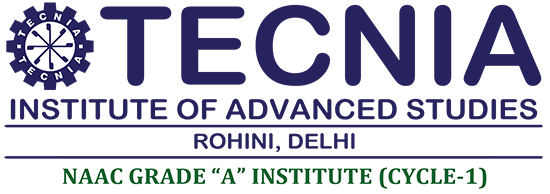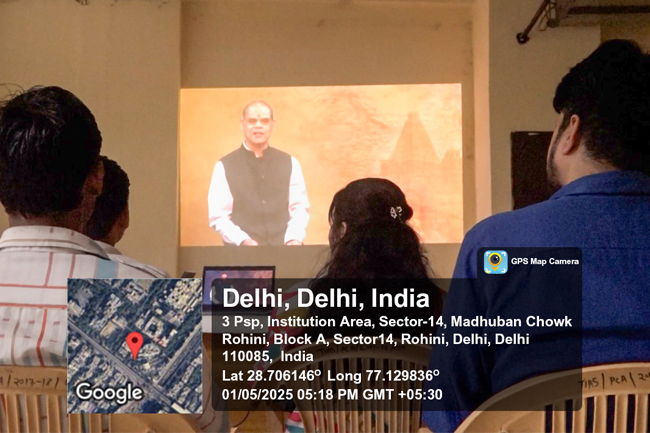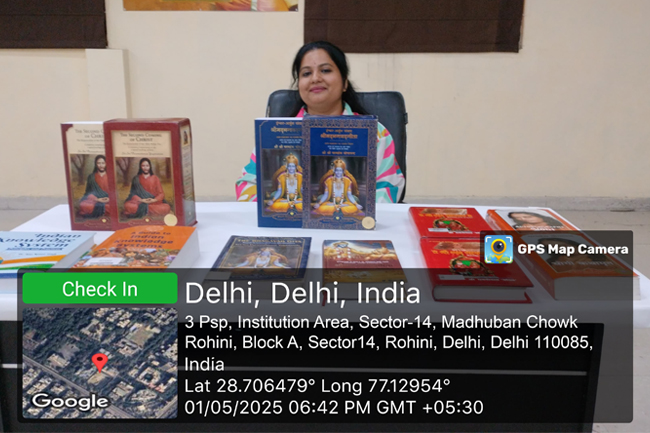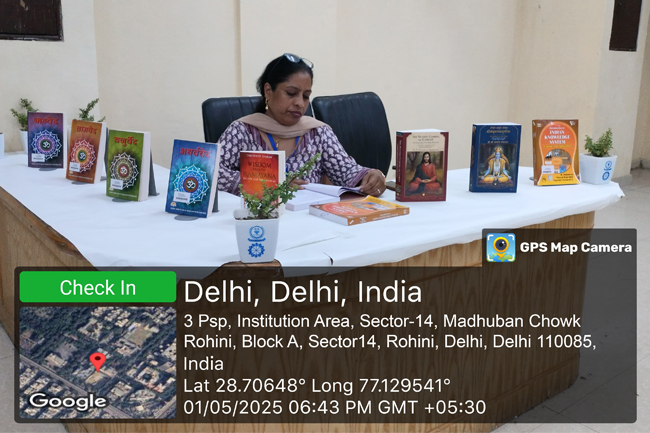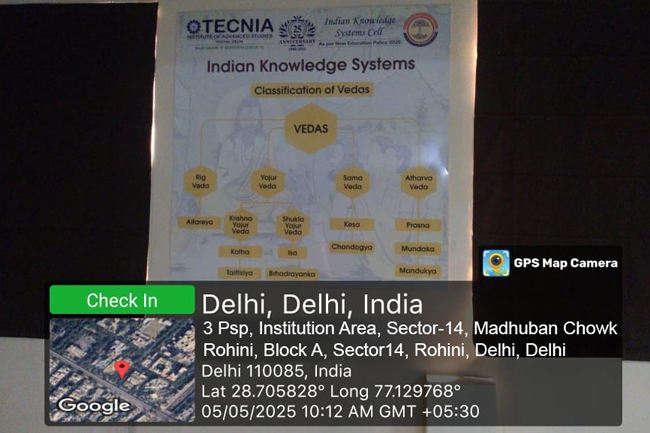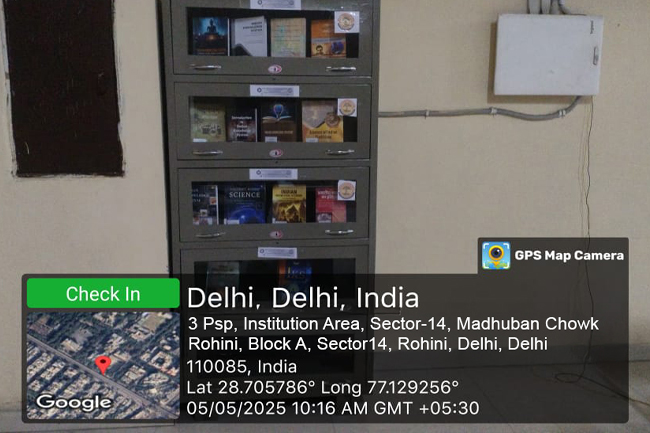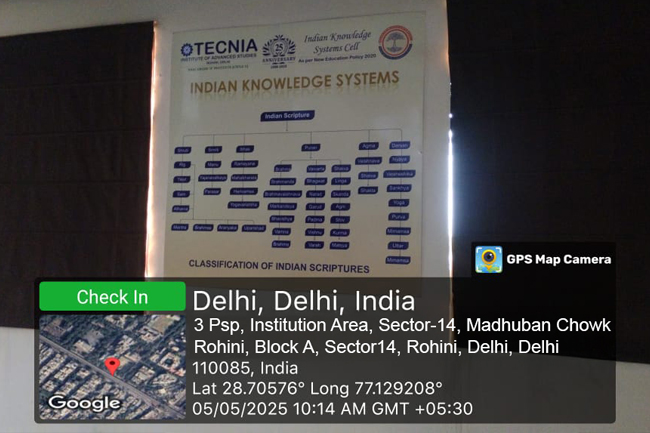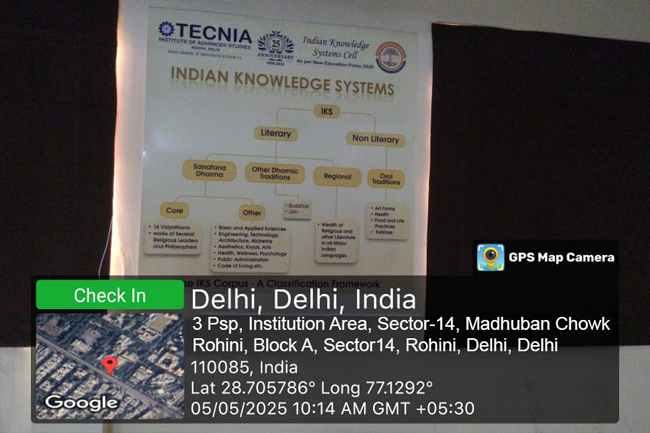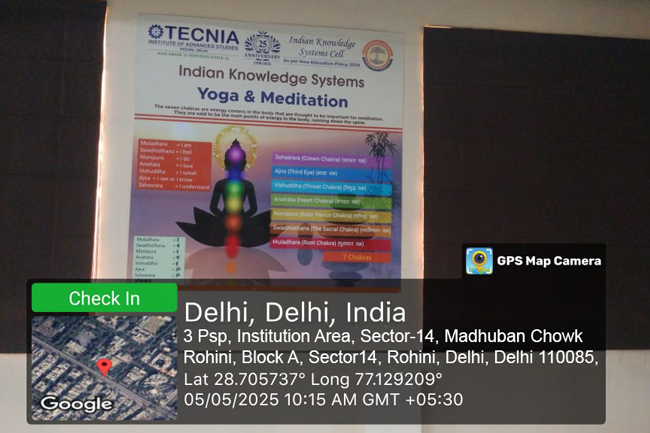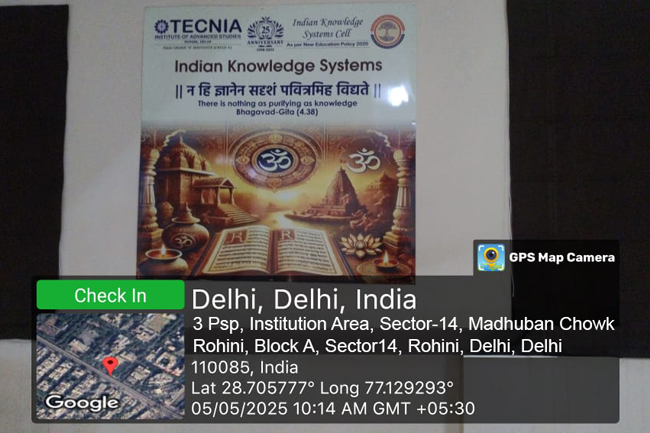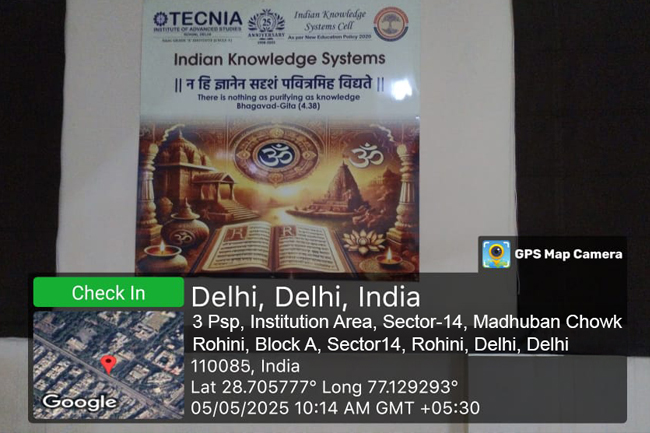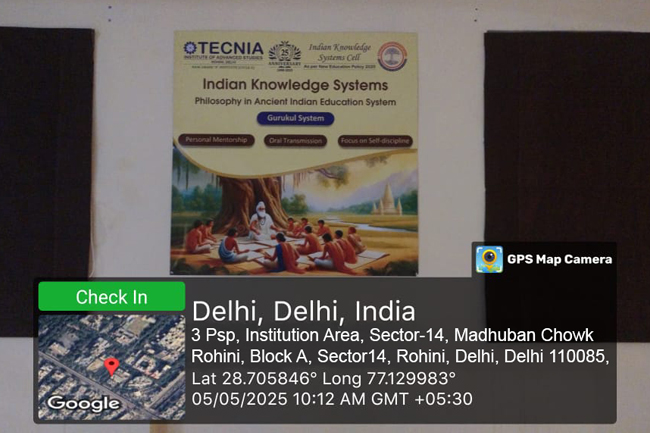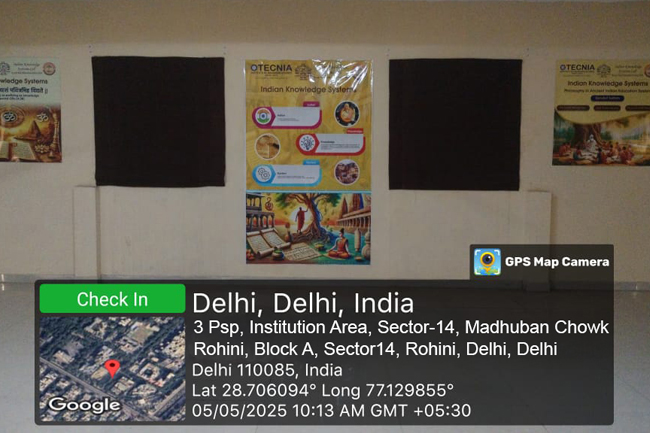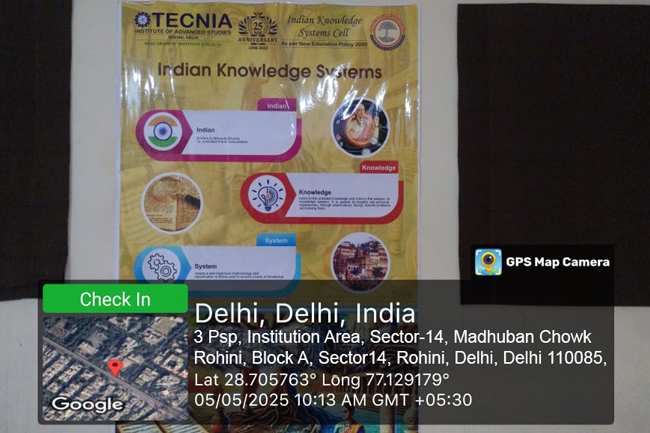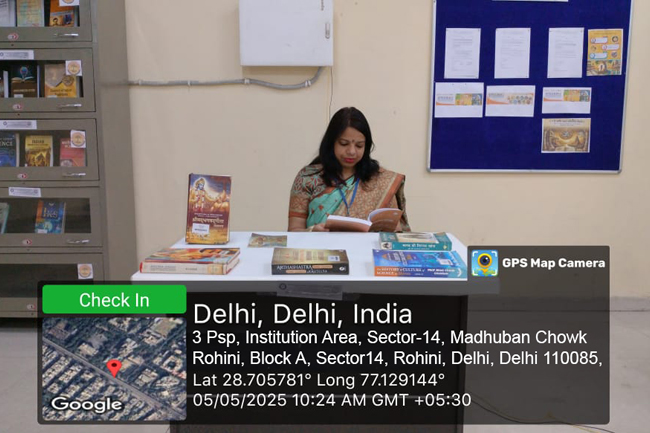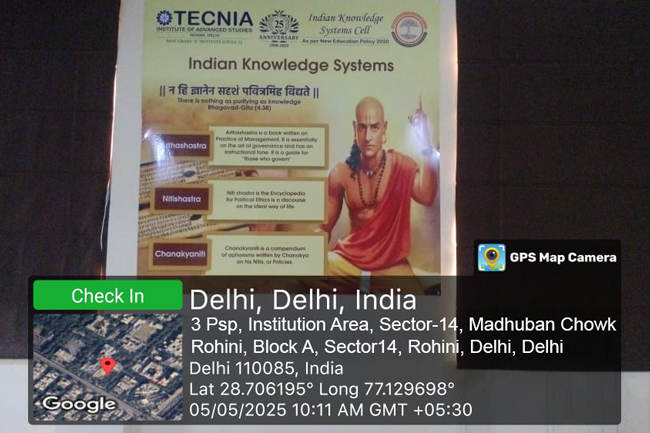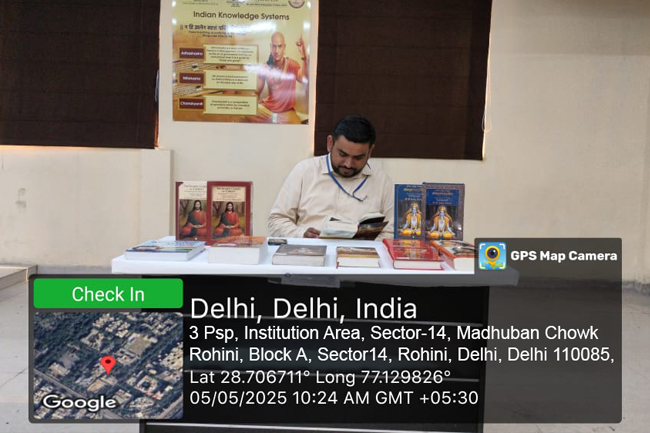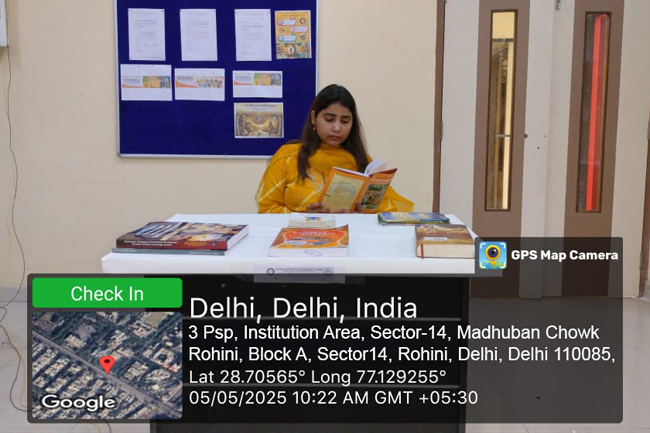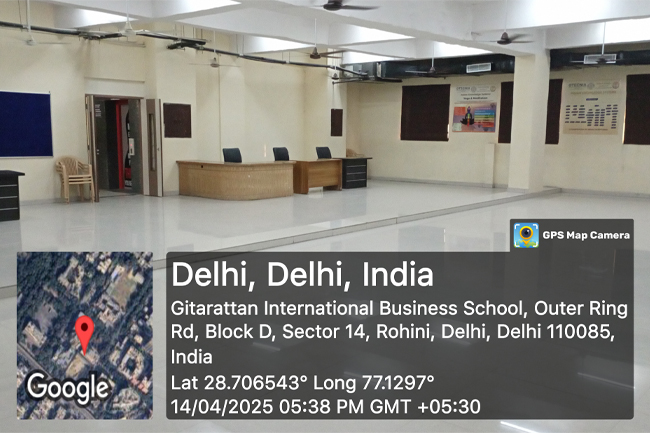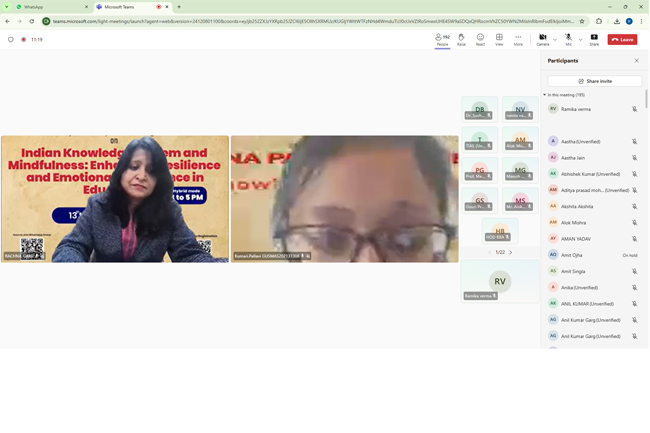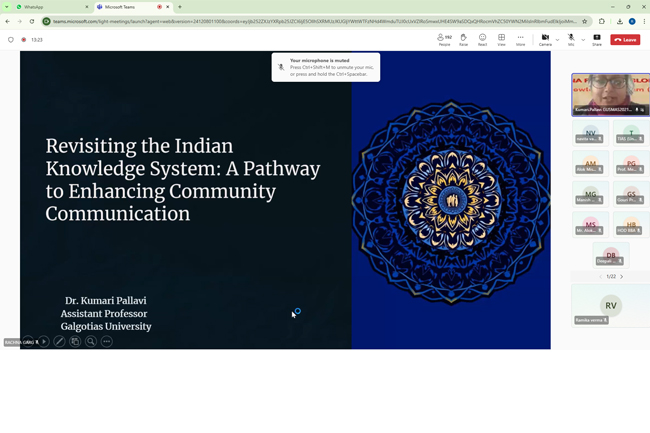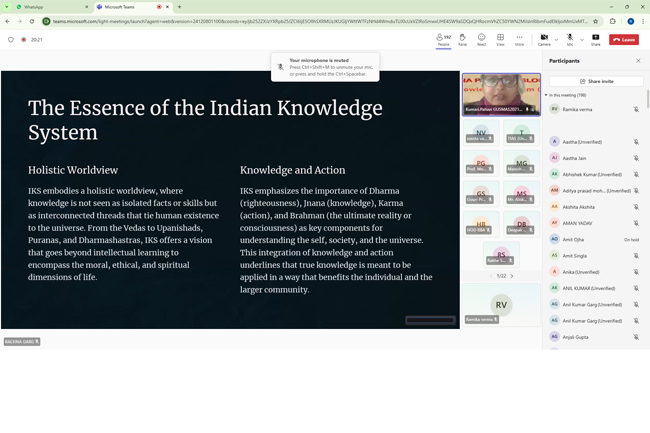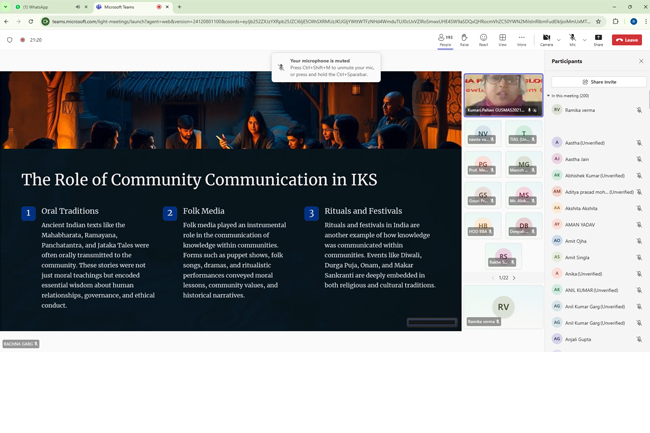


- INTRODUCTION
- VISION & MISSION
- BACKGROUND
- COMMITTEE
- IKS SYLLABUS
- ADVISORY BOARD
- E-BOOKS
- GUIDELINES
- ANNEXURE
- STATUTE
- NOTICES
- POLICY & GUIDELINES
- REPORTS
- DOWNLOADS
- EMAIL REPORTS
- VIDEO
- PHOTO GALLERY
- VIKSIT BHARAT@2047
Introduction
The National Education Policy 2020 lays emphasis on the promotion of Indian Languages, Arts and Culture, and tries to remove this discontinuity in the flow of Indian Knowledge System by integrating IKS into curriculums at all levels of education. In order to facilitate a seamless integration of Indian traditional knowledge with modern subjects, UGC has come up with’Guidelines for Training of Faculty on IKS’. These guidelines will inspire the faculty in higher education institutions of the country to generate a positive attitude, explore, and undertake quality research on IKS, and herald a new era in higher education ecosystem of the country in the light of NEP 2020. The IKS guidelines will be a part of the training modules under “Malviya Mission” and will be considered under CAS scheme as per the UGC regulations
The guidelines are available on the UGC website. All the Higher Education Institutions are requested to take necessary steps to follow the guidelines to facilitateb seamless integration of Indian traditional knowledge with modern subjects.






vision
The vision of the IKS Division is to rejuvenate and mainstream Indian Knowledge Systems for the contemporary world.The objective of the IKS Division is to completely decolonize Indian mind by generating interest and healthy critical reverence for the unbroken knowledge traditions of Bhārata for the welfare of the world.
Mission
Enable students, faculty and staff to engage in education and research on Indian Knowledge
Systems for developing appropriate technologies/practices and products for sustainable growth.
BACKGROUND
Integration of IKS in the curriculum at various levels involves an introduction to IKS, it’s
Scope & History, and amalgamation of fundamental IKS concepts into modern textbooks, leading
to developing Indian Thought Models based on available IKS literature, and their application into
various contemporary problems solving methods. Understanding that teacher training is important
to the success of NEP 2020, UGC constituted a committee of experts to recommend strategies by
formulating guidelines for effective teacher training/orientation in IKS. Teacher
training/orientation is typically conducted by various agencies such as HRDC, and PMMMNMTT
( Malviya Mission). The faculty in the UGC- recognized institutions are required to attend a
mandatory induction program (175 hours) and periodically attend the refresher courses which may
include subject-specific courses. The refresher courses are required for the continued professional
advancement of the faculty in UGC-recognized academic institutions.
Committee Of IKS
|
Advisory Board Committee of IKS Cell
|
GUIDELINES
The needs of faculty coming into the induction program are slightly different from the ones coming for the refresher courses. Faculty coming into the induction program are experts in their topics but may not have deep knowledge about the IKS. The freshly inducted faculty members attending this program may not have the experience of teaching large classes. Therefore, the guidelines are specified separately for the induction/orientation program and the refresher courses. The major purpose of all such training programs shall be to generate a positive attitude towards IKS and promote interest in knowing and exploring more, rather than covering a lot of content related to IKS.
ANNEXURE
Model Syllabi for the teacher training guidelines. The following syllabi have been prepared by the committee to help guide the creation of such courses for teacher training. These course outlines are not prescriptive and are intended to help the instructors in the preparation of course syllabi as per the needs of the learners.
POLICY & GUIDELINES
| |||||||||||||||||||||||||||||||||||||||||||||||||||
IKS Activity Reports
|
EMAIL REPORTS
|
||||||||||||||||||||||||||||||||||||||||||||||||||||||||||||||||||||||||||||||||||||||||||||
| ||||||||||||||||||||||||||||||||||||||||||||||||||||||||||||||||||||||||||||||||||||||||||||||||||||||||||||||||||||||||||||||||||||||||||||||||||||||||||||||||||||||||||||||||||||||||||||||||||||||||||||||||||||||||||||||||||||||||||||||||||||||||||||||||||||||||||||||||||||||||||||||||||||||||||||||||||||||||||||||||||||||||||||||||||||||||||||||||||||||||||||||||||||||||||||||||
|
<h4>Committee <span class=”red”>Of IKS</span>
</h4>
<table style=”margin-top: 10px !important;” border=”0″ width=”100%” cellspacing=”0″ cellpadding=”0″>
<tbody>
<tr>
<td class=”arial” valign=”top”>
<table style=”margin-bottom: 0px;” border=”0″ width=”100%” cellspacing=”1″ cellpadding=”3″ align=”left” bgcolor=”#D2D2D2″>
<tbody>
<tr bgcolor=”#e2ebf6″>
<th style=”text-align: left;” valign=”top” width=”4%”>
<span style=”color: #e2ebf6; font-weight: bold; text-transform: uppercase;”>No.</span>
</th>
<th style=”color: #242a7a; text-align: left;” width=”15%”>NAME</th>
<th style=”color: #242a7a; text-align: left;” width=”40%”>DESIGNATION</th>
<th style=”color: #242a7a; text-align: left;” width=”15%”>DESIGNATION IN THE COMMITTEE</th>
<th style=”color: #242a7a;” width=”20%”>E-MAIL</th>
</tr>
<tr bgcolor=”#fff”>
<td>
<img src=”https://tiaspg.tecnia.in/wp-content/uploads/2021/09/deshh.png” width=”19″ height=”20″/>
<td class=”fnui”>Dr. M. N. Jha</td>
<td class=”fnui”>Dean Academics, Tecnia Institute of Advanced Studies, Delhi</td>
<td>Chairperson</td>
<td>deanacademics@tecnia.in</td>
</tr>
<tr bgcolor=”#fff”>
<td>
<img src=”https://tiaspg.tecnia.in/wp-content/uploads/2021/09/deshh.png” width=”19″ height=”20″/>
<td>Ms. Meenakshi Azad</td>
<td>Assistant Professor, Dept. of Management Sciences, , Tecnia Institute of Advanced Studies, Delhi</td>
<td>Incharge</td>
<td>meenakshiazad80tias@gmail.com</td>
</tr>
<tr bgcolor=”#fff”>
<td>
<img src=”https://tiaspg.tecnia.in/wp-content/uploads/2021/09/deshh.png” width=”19″ height=”20″/>
<td>Dr. Archana Dixit</td>
<td>Programme Coordinator, Department of Management Sciences (BBA evening Wing), Tecnia Institute of Advanced Studies, Delhi</td>
<td>Member Secretary</td>
<td>hodbba@tecnia.in</td>
</tr>
<tr bgcolor=”#fff”>
<td>
<img src=”https://tiaspg.tecnia.in/wp-content/uploads/2021/09/deshh.png” width=”19″ height=”20″/>
<td>Dr. Pooja Sharma</td>
<td>HoD, Dept. of Management Sciences, Tecnia Institute of Advanced Studies, Delhi</td>
<td>Member</td>
<td>hodmba@tecnia.in</td>
</tr>
<tr bgcolor=”#fff”>
<td>
<img src=”https://tiaspg.tecnia.in/wp-content/uploads/2021/09/deshh.png” width=”19″ height=”20″/>
<td>Dr. Sushma Bahuguna</td>
<td>HoD, Dept. of ICT, Tecnia Institute of Advanced Studies, Delhi</td>
<td>Member</td>
<td>deanict@tecnia.in</td>
</tr>
<tr bgcolor=”#fff”>
<td>
<img src=”https://tiaspg.tecnia.in/wp-content/uploads/2021/09/deshh.png” width=”19″ height=”20″/>
<td>Dr. Shivendu Rai</td>
<td>HoD, Dept. Journalism and Mass Communication, Tecnia Institute of Advanced Studies, Delhi</td>
<td>Member</td>
<td>shivendu_rai@yahoo.com</td>
</tr>
<tr bgcolor=”#fff”>
<td>
<img src=”https://tiaspg.tecnia.in/wp-content/uploads/2021/09/deshh.png” width=”19″ height=”20″/>
<td>Dr. Monisha</td>
<td>Programme Coordinator, Department of Management Sciences (BBA-Morning Wing), Tecnia Institute of Advanced Studies</td>
<td>Member</td>
<td>hodbba@tecnia.in</td>
</tr>
<tr bgcolor=”#fff”>
<td>
<img src=”https://tiaspg.tecnia.in/wp-content/uploads/2021/09/deshh.png” width=”19″ height=”20″/>
<td>Dr. Pushpa Rani</td>
<td>Programme Coordinator, Department of Commerce, Tecnia Institute of Advanced Studies, Delhi</td>
<td>Member</td>
<td>pushpasangwan9@gmail.com</td>
</tr>
</tbody>
</table>
</td>
</tr>
</tbody>
</table>
</div>

